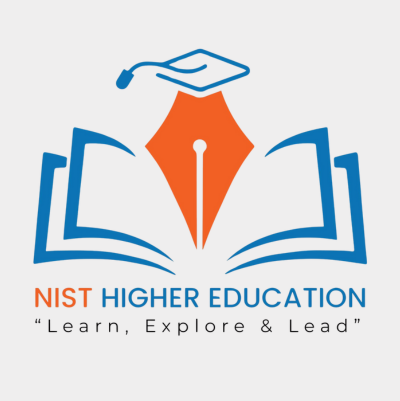Overview
NCFST was established in 2007 as part of the National Institute of Science and Technology (NIST) in Nepal. It offers food technology programs taught by teachers and professionals with experience in teaching, research, and industry.
The program helps students build a clear understanding of how food is made, tested, and kept safe. Coursework and lab work cover core areas:
-
Food science
-
Chemistry
-
Microbiology
-
Engineering
-
Nutrition
Students learn practical skills for developing products, checking quality and safety, and meeting standards used in Nepal and in export markets.
The food sector is changing with new methods and shifting consumer habits. NCFST’s curriculum is designed to help students follow these changes and work responsibly in roles such as processing, product development, and quality assurance.
Salient Features of NCFST
-
Group project work - Students work in teams to design and develop food products, learning planning, prototyping, testing, and clear documentation.
-
Nutritional survey practice - Field and desk studies on dietary patterns and nutrient intake build skills in data collection, basic statistics, reporting, and research ethics.
-
Food pilot plant practicals - Hands-on sessions in a pilot plant help students apply unit operations, run quality checks, and follow hygiene and safety procedures.
-
Links with industry - Resource sharing, guest talks, site visits, and short placements expose students to current practices and tools used in the food sector.
-
Applied research - Research projects focus on real processing or quality challenges. Students learn method selection, validation, analysis, and concise reporting.
-
Sensory evaluation facility - A controlled room for sensory testing trains students to assess products by taste, aroma, texture, and appearance using standard protocols.
-
Research labs for dissertations - Dedicated labs support dissertation work in areas such as microbiology, chemistry, and product analysis, with supervision and instrumentation support.
-
Sample analysis practice - Facilities allow analysis of market and industrial samples using standard methods, emphasizing record-keeping, traceability, and quality control.
-
Community engagement - Activities such as food safety awareness, nutrition education, and waste reduction encourage responsible practice and public service.
Infrastructure at NCFST
-
Classrooms and labs - Clean, well-maintained classrooms and practical labs, plus a seminar hall for talks, workshops, and presentations.
-
Laboratories - Teaching and research labs equipped with PCR machines, real-time PCR, ELISA readers, and UV–visible spectrophotometers.
-
Library - Updated collection of books, journals, and digital resources in food science and technology, with study space for individual and group work.
-
Power and internet - Backup power and reliable internet to support classes, lab work, and research.
-
Multimedia and computer labs - Facilities for presentations, simulations, data analysis, and report writing.
-
Major equipment - High-speed refrigerated centrifuges, autoclaves, freezers, ovens, pH meters, laminar-flow cabinets, electronic balances, microscopes, and food-processing tools such as juice pulpers, meat mincers, bowl choppers, and sausage stuffers.
Pathway to Success
Graduates of NCFST work across many parts of the food industry. Their training focuses on product development, processing, quality systems, and food safety. As export standards tighten and consumers look for more variety and convenient options, this background helps them handle practical requirements in quality control, documentation, and compliance.
-Photo-Gallery.jpg)
Academic Program
Bachelor of Food Technology (BTech Food) at NCFST
The BTech Food program builds the knowledge and skills needed for work in today’s food sector. Students study core areas of food science, technology, engineering, and nutrition, and learn how these fields connect in real processing and safety contexts. The program prepares graduates for roles in food production, quality control, and research and development, as well as related technical and analytical work.
Eligibility and Selection Process
Eligibility
-
10+2 (Science) or equivalent from TU or a recognized board/university.
-
Background in food technology or laboratory technology preferred.
-
At least a good second division.
Application process
-
Collect the application form from the NCFST Admission Office, Khusibu, Nayabazar, Kathmandu.
-
Complete the form carefully and submit it with the required documents within the stated deadline.
Entrance examination
-
Admission requires passing the entrance exam conducted by Tribhuvan University.
-
The exam assesses the knowledge and aptitude needed for food technology studies.
Selection criteria
-
Selection is merit-based and determined by the TU entrance examination score.
Admission Guidelines for NCFST
Who can apply
-
Students who have completed 10+2 (Science) or an equivalent qualification, preferably with a focus on food technology or laboratory technology, and at least a good second division from TU or an equivalent university.
Where to apply
-
Application forms are available at the NCFST Admission Office, Khusibu, Nayabazar, Kathmandu.
What to submit
-
A completed application form and the required supporting documents (as specified in the form/instructions).
What happens next
-
All applicants must sit for the Tribhuvan University entrance examination.
-
Admission is offered on a merit basis using the entrance examination results.
Note - Dates, deadlines, and document lists are announced by NCFST/TU each cycle. Please check the latest notice before applying.
Why Choose NCFST for Food Technology Education
-
Curriculum that covers what matters - You study food processing, microbiology, chemistry, quality systems, and nutrition—with assignments and labs that show how these areas work together in real production and safety contexts.
-
Facilities that support learning by doing - Well-equipped laboratories, a food pilot plant, and a sensory evaluation room let you practice unit operations, run quality checks, and carry out shelf-life and sensory tests.
-
Experienced teachers and mentors - Faculty with academic and industry backgrounds guide classes, labs, and projects, giving practical feedback and steady supervision.
-
Applied research focus - Student projects address concrete processing, safety, and product-development questions. You learn study design, data collection, analysis, and clear reporting.
-
Exposure to the workplace - Talks, site visits, short placements, and resource sharing with companies help you see current tools and standards, including documentation used in compliance and audits.
-
Career guidance - Support for internships, CV reviews, interview practice, and job search helps you prepare for roles in production, quality control, product development, and related areas. Alumni work in processing plants, laboratories, research units, and public agencies.
-
Community and responsibility - Students take part in nutrition awareness, food safety outreach, and waste-reduction activities, building habits of careful, ethical practice.
-
Scholarships - Need-based and merit-based support (per announced criteria) helps qualified students continue their studies.
-
Campus life that builds soft skills - Clubs, seminars, and team projects strengthen communication, leadership, and teamwork alongside technical learning.
Contact the National College of Food Science and Technology (NCFST) administrative office for detailed information on the course, admissions, location, fees, scholarships, facilities, counseling, or eligibility.
Contact Details
National College of Food Science and Technology (NCFST)
Email Address: ncfst.nist@nacol.edu.np
Phone Number: +977-1-4964068, +977-1-4960509
Website: https://www.nacolnist.edu.np
Location: Khusibu Town Planning, Sorhakhutte, Kathmandu, Nepal













